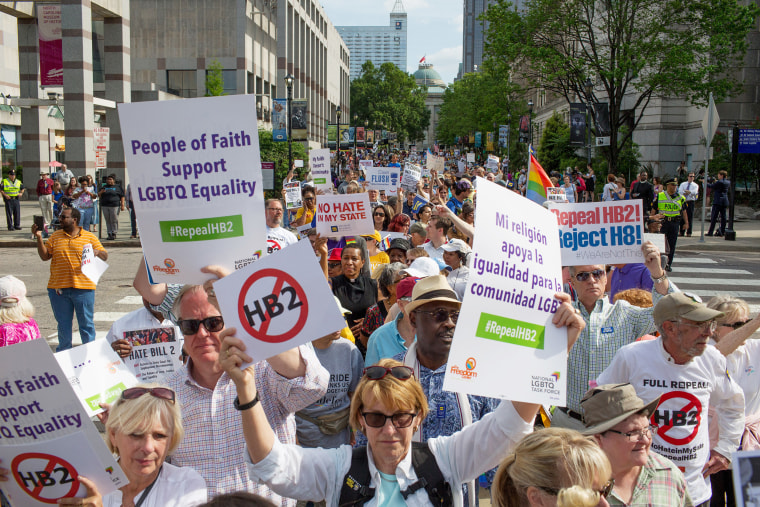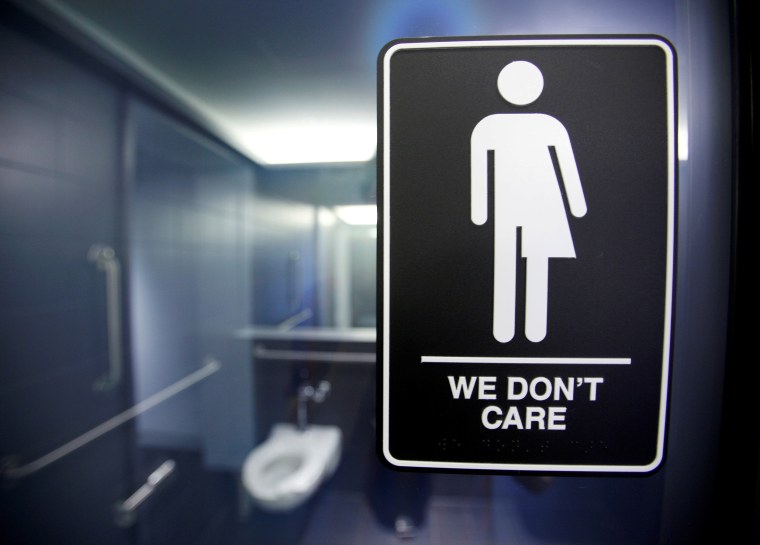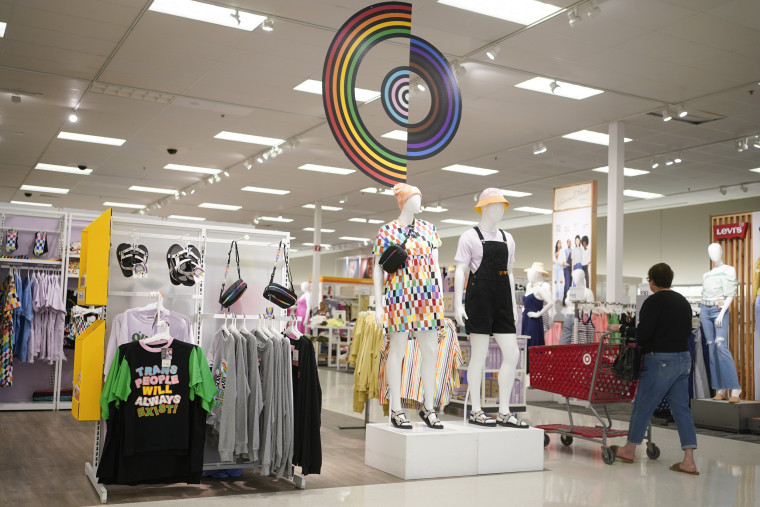A transgender “bathroom ban” in North Carolina caused a national uproar in 2016. Bruce Springsteen, Cyndi Lauper, Nick Jonas and a long list of other A-list performers canceled shows in the state. Global corporations Deutsche Bank and PayPal torpedoed plans to expand in Cary and Charlotte. The NCAA moved its scheduled championship games elsewhere.
Now, eight years later, after Utah passed a similar bill on Monday, the reaction beyond the state’s borders appears to be more of a shrug.
Neither of Utah’s largest businesses released statements in response to the legislation. Tens of thousands of out-of-towners, and an ensuing economic boost, were just heading home from the Sundance Film Festival, held annually in Park City. Global sensation — and queer icon — Bad Bunny is slated to headline a concert in Salt Lake City in upcoming weeks. Next month, Salt Lake City will be hosting first- and second-round games in the NCAA men’s basketball tournament.
Representatives for the NCAA, Bad Bunny and Sundance did not immediately return requests for comment.
In fact, nine other states passed so-called transgender bathroom bills in the years between those passed by North Carolina and Utah, with little fanfare as well.

Allison Scott, who volunteered as an on-the-ground activist in North Carolina to fight HB 2, described this week’s lackluster reaction to Utah’s “bathroom bill” and the several others that have been passed in recent years as “very telling.”
“We were all saying that with HB 2: ‘It’s not over,’” said Scott, who is also the director of impact and innovation for the Campaign for Southern Equality, an LGBTQ advocacy group. “Now, here we are several years later and we’ve seen these bills grow and increase and grow and increase year over year over year, and we’re right back not only where we started but worse.”
While the enactment of the Utah law has immediate implications for the state’s trans community, the tepid response to its passage also reflects a broader retreat on transgender rights that less than a decade ago galvanized corporate America, elite sports and Hollywood.
Utah House Bill 257, which is titled “Sex-based Designations for Privacy, Anti-bullying and Women’s Opportunities,” limits transgender people’s access to bathrooms in public schools and government-operated buildings. These include restrooms at Salt Lake City International Airport, which is managed by local government, and in Utah’s public hospitals and universities. It also specifies the state’s legal definition of “male” and “female” is based on a person’s genitalia at birth rather than their gender identity.
The bill makes exceptions for trans people who have received genital surgery and changed their gender marker to match their gender identity on their birth certificates.
Critics of the legislation have said the law will create a “dangerous situation for trans youth.”
Supporters of the legislation have argued that without a measure in place, men posing as trans women will go into women’s public restrooms and commit sexual misconduct.
Rep. Kera Birkeland, who sponsored the Utah law, said that the bill was necessary to close a “giant loophole for predators” and will only criminally charge offenders who commit “an offense of lewdness,” as the bill states.
“If the people just go in and use the bathroom the way they’re supposed to be used, they will be fine. That has remained consistent throughout the bill, throughout any change,” Birkeland said in a phone call. “We’re not targeting just people who are transgender or people who are like, ‘I’m going to miss my flight, I’m going to duck into the men’s bathroom because the line is shorter.’”
She also pushed back on criticism that the bill would create an environment where Utahns are policing trans people in public restrooms, pointing to a provision in the bill that would criminally charge people for falsely reporting trans people in public restrooms.
“We do not want to incentivize any vigilante people out there trying to be jerks,” she said. “The whole goal is just to ensure that everyone feels like they have a safe place to do private things.”
Erin Reed, a transgender journalist and advocate, pushed back on this, arguing that the legislation will create disruption for trans people regardless of the bill’s specifics.
“People are not going to go through the fine points of a 12-page law,” Reed said. “More likely than not, you’re just going to see trans people and cis people challenged in bathrooms.”
Aside from Utah and North Carolina, lawmakers in nine other states have enacted similar legislation in recent years, including in Florida, Tennessee and Kentucky, according to a tally by The Associated Press. The measures largely restrict trans people’s access to restrooms solely in schools or in schools and government-operated buildings.
But North Carolina’s law, HB 2, went further, barring trans people from using restrooms and changing facilities that matched their gender identities in most public spaces.

HB 2 — which was later partially repealed in 2017 — also prevented local governments from passing LGBTQ nondiscrimination measures and rendered then-existing protections, including one in Charlotte, moot. For this reason, the law affected a much broader segment of the population compared to today’s bills and therefore drew national ire, said Shannon Gilreath, a professor at Wake Forest University’s School of Law and a faculty member of the university’s gender and sexuality program.
“When one’s own interests are not directly compromised by some form of discrimination, one is less likely to respond or to care,” Gilreath said. “I might not believe that’s necessarily the right attitude to have — to do what’s expedient versus to do what’s right in a situation — but that’s human nature.”
Some studies back Gilreath’s line of reasoning.
A survey from the nonpartisan research group Public Religion Research Institute conducted last year found an estimated 79% of Americans support anti-discrimination protections for LGBTQ people. Policies that largely favor trans Americans solely received significantly less support, the poll found. However, Americans who say they know at least one trans person are much more likely to support pro-trans policies, a 2022 survey from the Pew Research Center found.
Reed said that what’s changed from 2016 to now is that people — and even billion-dollar corporations — have become afraid of provoking the far-right.
She pointed to a group of conservative provocateurs who collectively have amassed tens of millions of social media followers in part by stoking outrage over LGBTQ issues. In several instances, threats of violence have followed the subjects of posts made or amplified by the group of right-wing influencers.
“These people are scary,” Reed said. “If the NBA All-Star Game threatened to pull a game right now? In this atmosphere? Today? They’d get bomb threats from conservatives.”
Last year, bomb threats were made to Budweiser factories across the country after trans influencer Dylan Mulvaney’s brand partnership with Bud Light created an online firestorm in pockets of right-wing social media. Target also pulled some of its LGBTQ-themed merchandise for Pride Month from its shelves last year after it said it received “threats impacting our team members’ sense of safety and wellbeing while at work.”

Reed also suggested that it might not be politically advantageous for Republicans to go against the grain when it comes to issues that affect trans people.
Republican Ohio Gov. Mike DeWine faced political blowback after vetoing a bill that would ban gender-affirming care for minors in the state in December. Former President Donald Trump urged Ohio state lawmakers to override the veto, writing on his social media platform, Truth Social, that he was “finished” with the Republican governor. Ohio senators overrode the governor’s veto last week.
In recent weeks, local activists had been unsure whether Utah Gov. Spencer Cox would sign HB 257. Cox in 2022 vetoed legislation that aimed to limit transgender students’ ability to compete on girls sports teams in school, citing the disproportionate rate of suicidal ideation among trans kids.
But since then, anti-LGBTQ political rhetoric and legislation have surged.
Conservative lawmakers introduced more than 500 anti-LGBTQ bills in state legislatures across the country, according to a tally by the ACLU, with the majority of them targeting trans people. Seventy-five of those bills became law, including a ban on gender-affirming care for minors in Utah, which Cox signed into law.
Cox signed Utah’s “bathroom bill” on Monday evening with little fanfare and issued a short statement after weeks of speculation on his position.
“We want public facilities that are safe and accommodating for everyone and this bill increases privacy protections for all,” the statement read.
The law is effective immediately.
In addition to Utah, legislators in five states — South Carolina, Virginia, West Virginia, Kansas and Iowa — have introduced their own “bathroom bills” or legislation that further expands “bathroom bills” already on the books, according to the American Civil Liberties Union.
